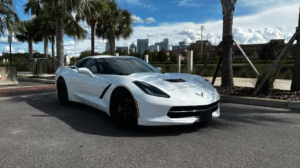In December 2021, a settlement was agreed betweenMercedes-Benz Canada Inc, Mercedes USA, Daimler AG, and car owners in Canada who brought a claim against the carmaker. The class action is linked to over 80,000 diesel vehicles equipped with BlueTEC engines that Mercedes sold to Canadian consumers.
The settlement involves compensation in the form of cash and benefits. The estimated settlement value is placed at around C$243 million (£156,663,305). Mercedes will also recall claimants’ affected vehicles for repair and update according to Canadian emissions regulations. After around six years of litigation, claimants will get the compensation they deserve.
Included in the claim and settlement are Mercedes-Benz vehicles manufactured between 2009 and 2016 and Mercedes-Benz Sprinters 2010-2016 models using BlueTEC.
At the time of the announcement, the diesel emissions class-action lawsuit settlement approved by the Ontario Superior Court of Justice was scheduled to happen last February 2022.
This development comes after Daimler settled with US authorities and car owners over Mercedes-Benz emissions cheating claims. The carmaker spent approximately US$2.2 billion (£1.97 billion).
Compensation details
Once the settlement is approved, Canadian car owners of affected Mercedes-Benz and Mercedes Sprinters are expected to receive/enjoy the following:
- Former lessees and owners can receive cash compensation worth a maximum of $835 (£538.33)
- All claimants who received emissions repair can get a maximum of $2,925 (£1,885.76) cash payment
- Claimants can also receive additional payments for emissions standard reclassification, emissions repair, and to make up for their vehicle’s reduced performance
- In some cases, claimants can be eligible for a buyback
Daimler continues denying the emissions cheating allegations and considers the settlement the best alternative to long and challenging court cases, which often lead to additional expenses and fees.
For the legal representatives and their clients, the settlement is another success in the ongoing global action against deceitful carmakers.
How did Mercedes break the law?
Mercedes-Benz is the second vehicle manufacturer to be implicated in the Dieselgate diesel emissions scandal. The first one was the Volkswagen Group and their Audi and VW diesel vehicles. VW was caught using defeat devices in vehicles they sold to US car owners.
A defeat device is illegal because it is used to sense when a vehicle is in regulatory testing so it could artificially bring down emissions levels to lower than the limits mandated by the World Health Organization (WHO). Inside the lab, the vehicle appears clean and environmentally safe.
However, once it is taken outside and driven on real roads, the vehicle shifts to its default settings. It then releases voluminous amounts of nitrogen oxide or NOx emissions, a group of highly reactive pollutant gases.
The Volkswagen Group admitted that they knew their diesel vehicles had defeat devices. From that moment on, VW has been spending millions on fees, fines, and emissions claim payments. The carmaker has also recalled thousands of affected vehicles.
A few years later, US authorities discovered defeat devices in Mercedes diesel vehicles sold in the American market. Car owners affected by the device joined together so they can file a class-action lawsuit against Mercedes-Benz.
Aside from VW and Mercedes, other carmakers are also involved in the scandal. This includes Renault, Nissan, BMW, Alfa Romeo, Vauxhall, Citroën, Ford, and Porsche. These manufacturers lied to their customers by marketing their vehicles as high-performing, environmentally safe, and clean when these were actually highly polluting.
Understanding diesel emissions
Diesel emissions that come from Mercedes and other diesel-powered vehicles are known as nitrogen oxide or NOX. Its main components are nitrogen dioxide or NO2 and NO or nitric oxide. It has negative effects on the environment and vegetation, and human health.
Acid rain, smog, and ground-level ozone are all pollutants and nitrogen oxide is responsible for producing them. Ground-level ozone impacts vegetation, specifically the growth and health of plants and crops. Given enough exposure to this toxic gas, plants and crops become vulnerable to extreme weather conditions like frost.
Several studies have also been published about the link between NOx and a person’s cognitive abilities. When one is constantly exposed to nitrogen oxide emissions, their cognitive function may be reduced. This can lead to dementia, specifically Alzheimer’s disease.
In some cases, a person’s mental health may also be triggered, so they can easily get depressed or anxious.
Exposure to NOx emissions has many negative impacts on a person’s health. The low-level ones include asthma, bronchitis, emphysema, and other respiratory diseases. A person can also find it difficult to breathe, especially when the fluid has entered their lungs. Other impacts include nausea and vomiting.
Serious health effects include laryngospasm, which is known as vocal cord spasms; asphyxia or asphyxiation; chronic lung function reduction; some cancers; cardiovascular illnesses; and early death.
These devastating, life-changing impacts should encourage all affected car owners to bring an emissions claim against their carmaker.
Diesel compensation for UK drivers
Defeat devices endanger the environment, drivers, and everyone around them. Carmakers should be held responsible for their actions.
Check your eligibility to make a diesel claim first to make sure that you are entitled to a Mercedes emission compensation. Visit the ClaimExperts.co.uk website to check your eligibility.


